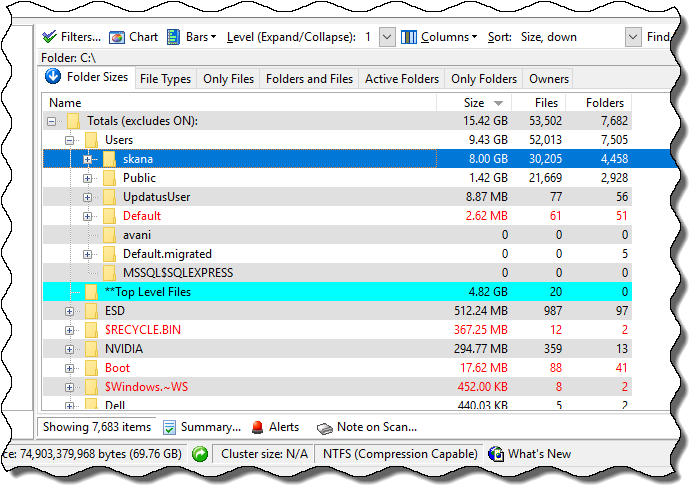How To Sort Folders By Size

How To Sort Folders By Size In Windows 10
Linux ls Command: Sort Files By Size. The ls command is used to list directory contents under Linux and Unix like operating systems. If no options or operands are given, the contents of the current directory are displayed on the screen. By default entries are sorted alphabetically if none of the -cftuvSUX nor -sort option passed to the ls command.


How To Sort Folders By Size In Linux
I need to get a list of human readable du output.However, du does not have a 'sort by size' option, and piping to sort doesn't work with the human readable flag.For example, running: du sort -n -rOutputs a sorted disk usage by size (descending): du sort -n -r65108.61508./dir32056./dir41032./dir1508./dir2However, running it with the human readable flag, does not sort properly: du -h sort -n -r508K./dir264M.61M./dir32.1M./dir41.1M./dir1Does anyone know of a way to sort du -h by size? As far as I can see you have three options:. Alter du to sort before display. Alter sort to support human sizes for numerical sort. Post process the output from sort to change the basic output to human readable.You could also do du -k and live with sizes in KiB.For option 3 you could use the following script: #!/usr/bin/env pythonimport sysimport resizeRe = re.compile(r'^(d+)(.)$')for line in sys.stdin.readlines:mo = sizeRe.match(line)if mo:size = int(mo.group(1))if size.
With zsh and GNU ls: ls -ldU -./.(.OL)Where (.OL) is a,. How to downgrade google chrome. To select regular files only, OL to reverse order by length (file size, o for ascending order, O for descending).(note that older versions of zsh had issues with file sizes over 2^32).Some operating systems have a limit on the size of the argument list passed to a command. In those cases, you'd need: autoload -U zargszargs././.(.OL) - ls -ldUIf you just want the list of files and not the detailed output, just do: print -rl -./.(.OL)If you want to include hidden files (whose name starts with a dot, except. And.) and search in hidden directories as well, add the D globbing qualifier: print -rl -./.(.DOL).